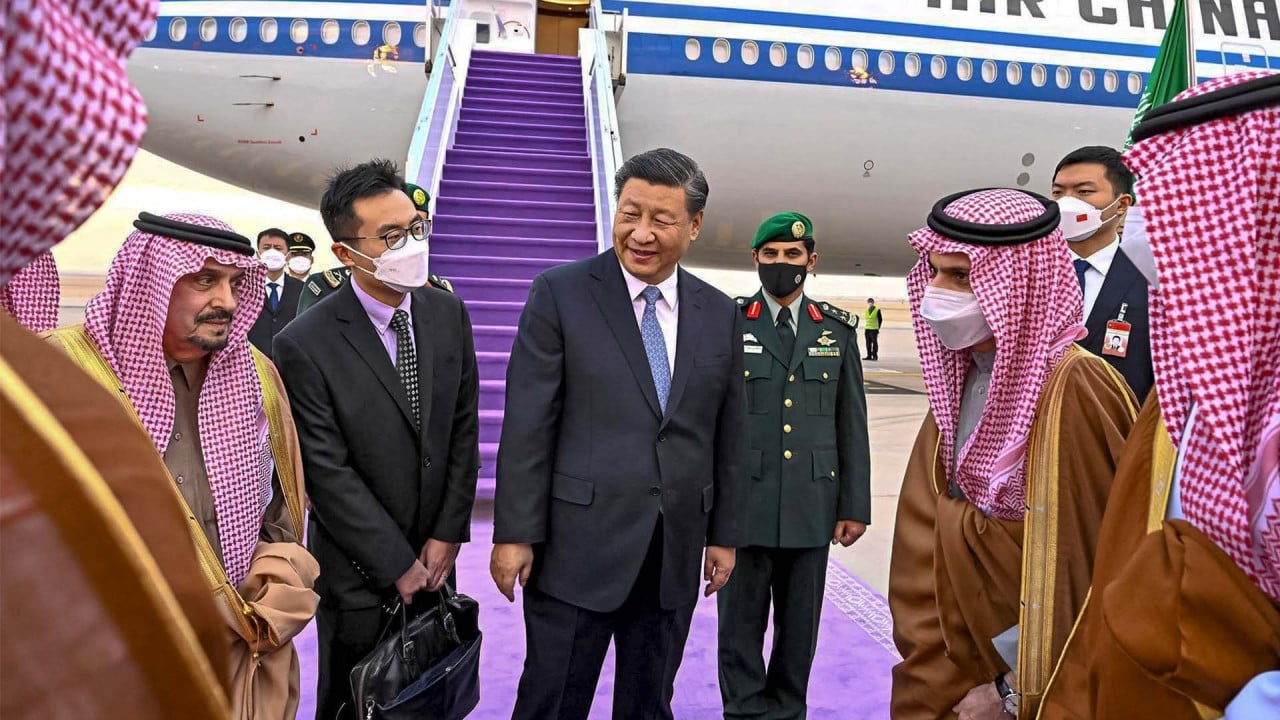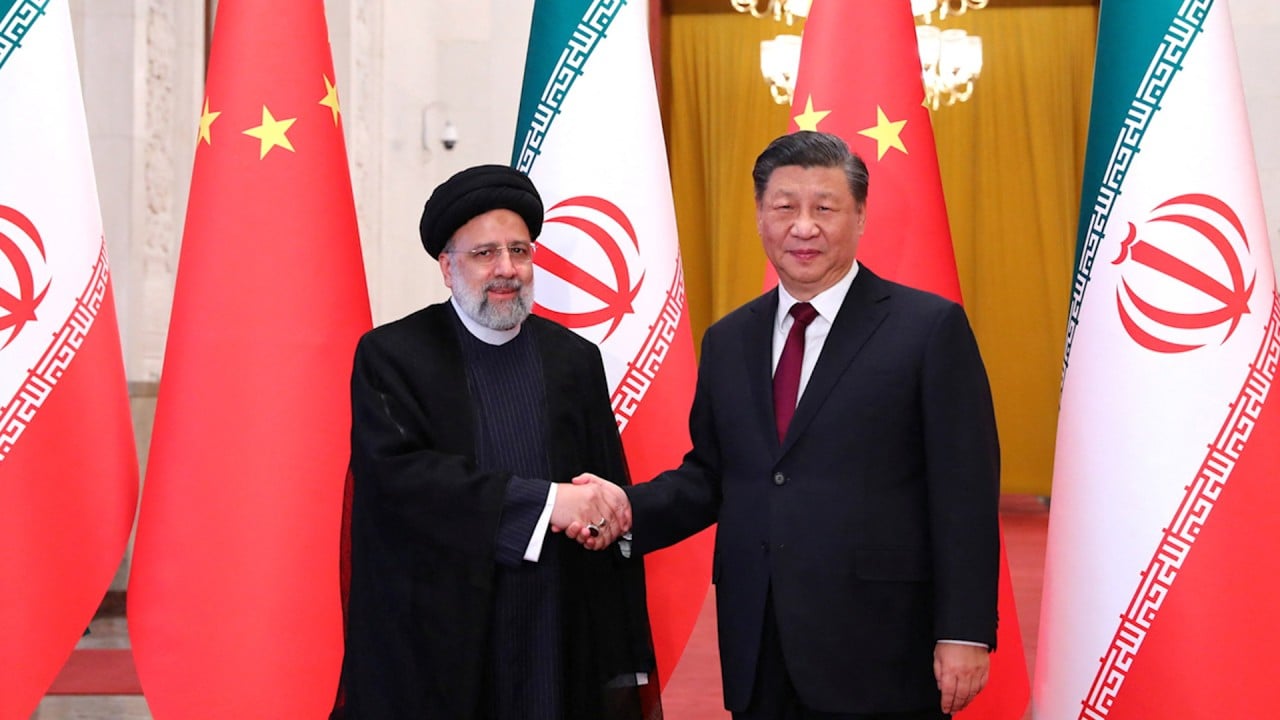
Saudi Arabia, Iran and how a Chinese-brokered deal shows Beijing’s Mideast influence
- The secret talks in the Chinese capital come as Beijing expands its engagement with the region
- Expectations could grow for China to push to resolve other difficult issues in the region, analyst says
The announcement by the two nations showed Beijing was expanding its economic engagement with the Middle East to focus more on security, at a time when US ties with the region were facing uncertainty, they said.
Even though Beijing had stepped up its presence in the region over the past decade, the diplomatic community was surprised when news emerged about the four days of talks between representatives of the two countries and Beijing during China’s annual legislative session.
“Beijing’s brokering of the re-establishment of diplomatic relations between the countries is a welcome, if somewhat surprising development,” said John Calabrese, director of the Middle East-Asia project at the US-based Middle East Institute think tank.
“The rift between Riyadh and Tehran has arguably been the most difficult for Beijing to navigate – and the most important, given China’s expanding economic footprint and growing ambitions in the Gulf.”
The talks were conducted in secret until a trilateral statement released on Friday said Iran and Saudi Arabia had agreed to resume diplomatic relations and reopen embassies within two months. Tehran and Riyadh also thanked the Chinese government for hosting the talks.
Iran was represented at the talks by Ali Shamkhani, secretary of the Supreme National Security Council, while Musaed bin Mohammed Al-Aiban, Saudi Arabia’s national security adviser, led the Saudi delegation. China’s top diplomat Wang Yi, a Communist Party Politburo member, attended the talks.
Ties between the two Middle East nations nosedived in 2016, when Saudi Arabia cut ties with Iran after the storming of its embassy in Tehran in an escalating dispute over Riyadh’s execution of a Shiite Muslim cleric.
The Chinese foreign ministry said on Saturday that the deal set a good example for countries to resolve regional conflicts through dialogue. The deal was also conducive to nations shedding “external interference and grasping their fate in their own hands”.
“China does not have a selfish interest in the Middle East and respects nations in the region as the masters of the region. China opposes geopolitical competition in the Middle East, will not seek to fill the ‘power vacuum’ and set up a bloc that excludes others,” the ministry said.
Fan Hongda, a professor at Shanghai International Studies University’s Middle East Studies Institute, said there were multiple points of conflict between Saudi Arabia and Iran, and bringing the two nations together for a successful negotiation was something that not every major country could have done.
“If the relationship between Saudi Arabia and Iran can make progress, other Middle East nations will have more expectations on China and the possibility for China to push for resolving difficult issues in the region will be elevated,” he said.
Xi vowed to strengthen Beijing’s partnership with Riyadh and the two nations signed 34 energy and investment deals. Saudi Arabia accounted for 17.8 per cent of China’s oil imports in the first three quarters of last year, and talks have reportedly been held on settling energy trades in their respective currencies – which would reduce the two countries’ reliance on the US dollar.
During Raisi’s trip, China and Iran said for the first time they would strengthen strategic communication between their defence agencies and expand military exchanges and cooperation “at all levels”.
Nadeem Ahmed Moonakal, a research scholar at the Rasanah International Institute for Iranian Studies in Riyadh, said Tehran had been facing international isolation following anti-government protests in the past year and a stalemate on a nuclear deal that had dashed hopes for relief from economic sanctions.
“Amid global geopolitical shifts, China enjoys a unique position in the region and Beijing has converging interests with both Saudi Arabia and Iran,” he said. “China has increased its presence in the Middle East significantly by deepening cooperation with regional powers.
“The deal is a very important development at a critical time and it will be projected as a major diplomatic victory by China. This particularly reflects Beijing’s growing economic and diplomatic clout in the region.”
“This issue will certainly be interpreted by Washington as a move by Beijing to escalate its geopolitical competition with the US in the Middle East,” he said.
Saudi Arabia and Iran have had a tense relationship since 1979, when Iran’s Islamic Revolution saw Shiite clerics topple the Pahlavi dynasty. Riyadh feared Tehran would export the revolution and assert greater influence in the region.
The two nations have also taken opposite sides in regional conflicts, including those in Syria and Yemen.
Tuvia Gering, a researcher at the Tel Aviv-based Institute for National Security Studies’ Israel-China Policy Centre, said China had gained from brokering the deal as prolonged conflict between Iran and Saudi Arabia would affect its interests.
“One reason China may have succeeded where Russia and others, namely Iraq and Oman, had failed is that China has more leverage,” he said.
“It is the largest trade partner of both Saudi Arabia and Iran, and it has plenty of other enticing carrots to offer or withhold. We don’t know what China had to offer each side to lubricate the deal, but it’s safe to assume it had something both sides needed.”
Wrapping up the talks on Friday, Wang said the agreement was a “victory of dialogue and peace”, and the deal “shows that the Ukraine issue is not the only problem the world faces today”.
Also on Friday, White House National Security Council spokesman John Kirby dismissed the idea that the US was stepping back from the Middle East, adding that the “durability” of the agreement reached in Beijing might be in question.
Analysts said it was too early to judge the impact of the deal on China’s influence in the region. Saudi Arabia has reportedly asked Washington to provide a security guarantee and help its civilian nuclear programme, while the US is seeking to broker the establishment of diplomatic relations between Saudi Arabia and Israel.
“Today’s breakthrough was undoubtedly novel, but it was no Camp David,” Gering said, referring to talks in 1978 that established a framework for a historic peace treaty between Israel and Egypt.
“All three parties have reasons to claim responsibility for today’s development as the best thing to happen to diplomacy since sliced bread, but what will China do if things go wrong and another conflict erupts? Will China then take responsibility?
“The true test of China’s influence in the region will be whether it can accept responsibility for mistakes, just as it does for successes like today.”





